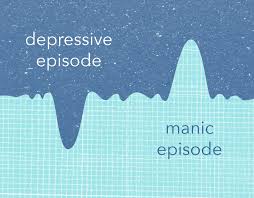Podcast link:
https://anchor.fm/boscom/episodes/2-33-Psyche--Soul--73-eq9ip5
Hello, this is Jose Parappully, Salesian priest and
clinical psychologist at Sumedha Centre for Psychospiritual Wellbeing at
Jeolikote, Uttarakhand, with another edition of Psyche & Soul.
In this edition I shall explore Depression.
According to data developed by the Global Burden
of Disease study, major depression is the leading cause of DALY or the years of healthy, productive life
lost to an illness, be it through early death or through disability worldwide.
Major depression is characterised by a pervasive
sense of profound sadness, low energy, disturbances in eating and sleeping,
feelings of guilt, low self-worth, hopelessness and meaninglessness, even
despair, poor concentration and problems with memory. Most people suffering
from it feel worst in the morning, and the mood seems to lighten a bit as the
day goes on.
Although
profound sadness is the salient features of depression, some
individuals suffering from it emphasize somatic complaints (e.g., bodily aches
and pains) rather than reporting feelings of sadness. While depressed persons are low on
energy and not very active, many of them report or exhibit increased
agitation, restlessness and irritability - which is a contributing factor to
sleeplessness.

When persons are depressed, it is very difficult for them to be interested on anything. They would prefer to stay in bed, even if they have desire to get out and do something worthwhile. It would be too much of an effort to get out, and so they often stay on in bed. They stop watching TV, stop reading, become silent and incommunicative. Those around them may label them lazy. But they are not. They would prefer to be active, but they just can’t bring themselves to do that.
Depression affects both mind and body. Depression can raise risk of heart disease. People who are depressed are three times more likely than those who do not suffer from it to experience pain, especially intense, disabling neck or back pain and headaches. One study has shown that people with major depression are three times more likely to have migraines, and people with migraines are five times more likely to get depressed. Depression can affect the stomach too -- causing nausea, indigestion, diarrhea, or constipation

Suicide
Thoughts of suicide or actual attempts are quite
common. The risk of suicide is
about 20 times greater among those diagnosed with major depression in
comparison to those without it. Two-thirds of those who commit suicide are
found to have struggled with depression. Women are more often
affected by depression than men, by a two to one ratio. However, more depressed men
(7%) than women (1%) commit suicide. One reason for this is that women are more
likely to seek treatment and take medication.
One
form of depression is known as bipolar,
also known as manic depression. A
person suffering from bipolar depression has periods of depression preceded or
followed by periods of mania in a cyclic fashion. The mania phase is
characterized by excessive elation, activity, talkativeness, inflated self-esteem
or grandiosity. The person may throw himself or herself into ceaseless activity
or show indiscriminate enthusiasm for interpersonal, and sometimes sexual,
involvement. Almost invariably, there is a decreased need for sleep. In extreme
cases, a person may go on for days without sleep and yet not feel tired. But after a while
he or she sinks back into the lethargy of depression. The duration of the
depressive and manic phases can be very short or long.
Depression is a complex illness with biological, personal and
environmental contributors. In the biological understanding, depression is
caused by imbalances in the brain chemistry.
Often, depression runs in
families, giving credence to the impact of hereditary factors. In this understanding,
depression is considered to be “endogenic,” that is, as arising from a
constitutional (inborn) disposition that is relatively unaffected by external
events.
However most often depression arises from personal experiences, especially of loss and setbacks in life. An unsupportive and unhealthy social environment exasperates the disappointments and distress as response to external factors.
There
are many personal experiences that can lead to depression. Physical,
sexual, or emotional abuse can increase the vulnerability to depression.
Interpersonal conflicts, especially family disputes, feeling of being unwanted,
prolonged grief after
death of a dear one, especially when the death is unexpected or tragic, can
turn into depression.
According to Roger MacKinnon
and Robert Michels, authors of the classic text “The Psychiatric Interview in Clinical Practice,” the loss of a love
object is the most common precipitant of depression. This loss is usually the
death of or separation from a loved one. In other circumstances, it is an
internal psychological loss resulting from unfulfilled expectations, or loss of
self-esteem and self-image. For depression-prone individuals self-esteem is
based upon continuing input of love, respect, and approval from significant
other figures in their life. When this is missing or disrupted, depression is
precipitated.
The
most common approach to treatment is biological - use of antidepressant
medications. When depression is deep seated, the medical approach can help to
restore some stability of mood, and provide help to return to some sense of
normality and involvement in society, and is often necessary.
The results obtained by the drugs, can be obtained by exercise as well. What medicines do is to restore the bio-chemical balance in the brain by working on molecules and hormones. Exercise does the same, but at a much slower pace. Research suggests exercise releases chemicals in the brain that make a person feel good, improves mood, and reduces sensitivity to pain. Exercise done along with others, increases human connection, and helps especially to lift oneself from the morose feelings that accompany depression.
Reaching out to others in kindness and compassion, also help to lower depression. Researchers at the University of California Riverside, and Duke University, for example, have found that engaging in these acts of kindness and compassion which they have labelled Positive Activity Interventions (PAI) help to reduce depression. These help persons suffering from depression to move out of their morose self-absorption, create positive feelings and help energise them, just like exercise does. They create a feeling of connectedness to others, bring meaning in their lives, increased perception of self-efficacy and competence, all of which we know alleviate depression.
Introspection and Prayer
Have you ever been
depressed? If yes what was it like? What helped you to get out of it?
Have you lived with anyone
who is depressed? What was that like?
Prophets and saint too have
been depressed. The prophet Jeremiah was depressed and even wished to die
because of the unresponsiveness of people to his message and their attacks on
him. The prophet Elijah too sunk into hopelessness and despair and wished he
were dead. Jesus struggled with his feelings of despondency in the Garden of
Gethsemane.
Have pleasant
weekend. Be safe. Be blessed.
Thank you for listening/reading.
Pictures: courtesy Google Images
Jose Parappully SDB, PHD
sumedhacentre@gmail.com











No comments:
Post a Comment